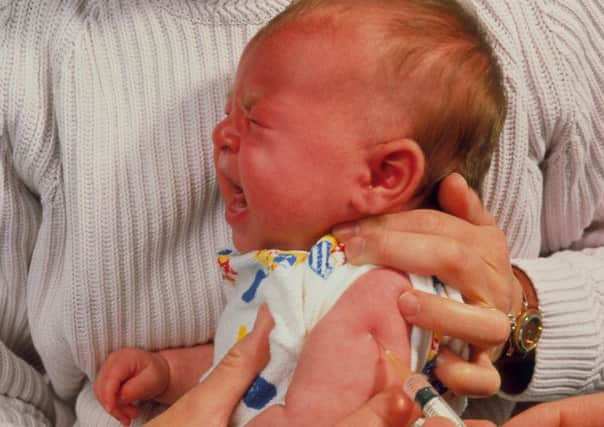Deadly measles complication more common than previously thought


Scientists say they are alarmed at the discovery that the neurological disorder, which is always fatal, may affect up to one in 600 non-vaccinated infants under a year old who get measles.
The condition, subacute sclerosing panencephalitis (SSPE), was once considered extremely rare, posing a risk to just one in 100,000 children with a history of measles. Recent research from Germany updated the incidence to one in 1,700 among children infected before the age of five.
Advertisement
Hide AdAdvertisement
Hide AdNow a new US study has shown the danger to be much more real for infants, with as many as one child in 600 being affected.
The only certain safeguard against SSPE is universal vaccination, experts stress. With enough of the population immunised, the spread of measles would be contained enough to protect infants too young for the vaccine.
Lead scientist Professor James Cherry, from the David Geffen School of Medicine at the University of California, Los Angeles, said: “This is really alarming and shows that vaccination truly is life-saving.
“Measles is a disease that could be eliminated worldwide, but that means vaccinating at least 95 per cent of all who are eligible with two doses of measles vaccine in order to protect everyone, including those who aren’t old enough to get the vaccine.” Measles commonly causes a fever, runny nose, cough, red eyes, sore throat and a distinctive rash.
The virus responsible is usually cleared from the body within 14 days. But in rare cases it spreads to the brain, where it can lie dormant for years – sometimes decades.
Scientists do not know what causes the virus to reactivate, but when it does the result can be SSPE – a condition leading to memory loss, mood changes, involuntary jerking movements, muscle spasms, and occasional blindness.
Eventually patients may become comatose. Death follows as a result of fever, heart failure, or the brain’s inability to control vital organs.
Prof Cherry’s team identified 17 cases of SSPE in California between 1998 and 2016, all of which involved patients who had contracted measles as children too young to be vaccinated.